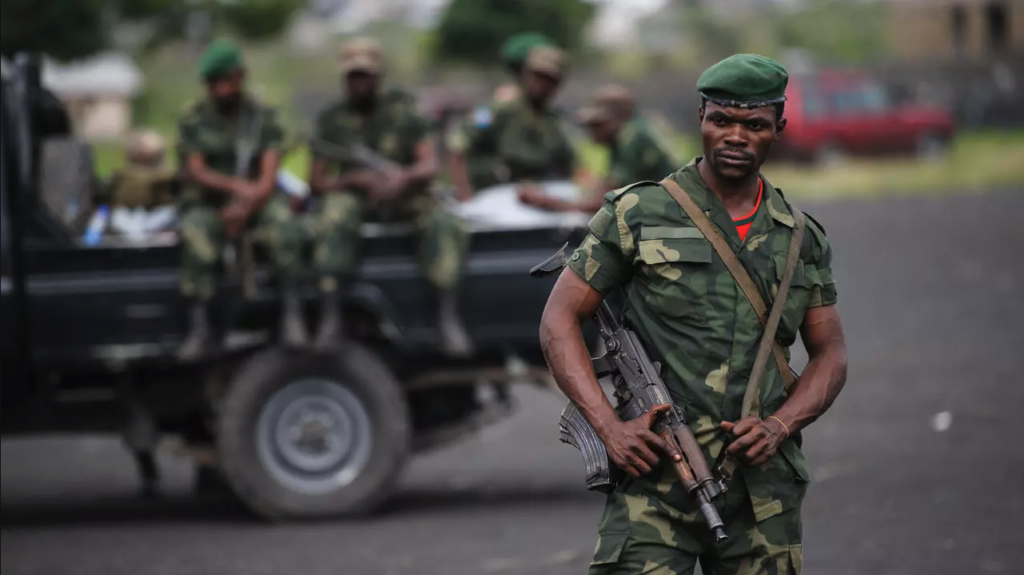New carnage in the troubled east of the DR Congo has seen dozens killed in recent days, many with their throats slit or burned alive, despite a state of siege aimed at reining in marauding militia groups.
The death toll from a gruesome attack last week in the North Kivu city Beni attributed to the ADF rebel group rose to 38 on Monday.
The Allied Democratic Forces (ADF) is the deadliest of scores of armed groups in the east of the country and the United States has formally linked it to the so-called Islamic State (IS).
A Red Cross official said bodies were found tied up, with their throats slit by machetes.
A respected monitor known as the Kivu Security Tracker (KST) said the attack was the deadliest since a bloodbath in neighboring Ituri province left 57 dead.
Elsewhere in the east of the vast central African country, a region rich in minerals and teeming with armed groups, assailants killed at least 17 civilians in Ituri province on Monday, local sources and KST said.
That attack was gruesome as well, with fighters of the Patriotic and Integrationist Force of Congo (FPIC) leaving some victims to be burnt alive in their homes.
The attack occurred in the village of Chabusiku, which is just 12 kilometers (seven miles) from Bunia, the provincial capital.
KST said the new massacre brought “to at least 1,137 the number of civilians killed in North Kivu and Ituri since the start of the state of siege.”
The measure took effect on May 6 to support a military offensive aimed at neutralizing armed groups who target civilians as well as army positions.
President Felix Tshisekedi decreed the measure, under which soldiers and police officers have replaced civilian authorities in the two provinces.
‘No Reaction’
In the Beni region, a civil society leader said warnings over the presence of ADF elements in the area went unheeded.
“We alerted the security forces… but there was no reaction up until this massacre,” said Moise Kiputulu, head of the group New Civil Society of Congo.
The ADF began in the 1990s as a coalition of armed Ugandan groups, the biggest of which comprised Muslims, who opposed Ugandan President Yoweri Museveni.
It moved into eastern DRC in 1995, establishing itself in the Rwenzori Mountains in North Kivu.
In April 2019, IS began to claim some ADF attacks on social media, presenting the group as its regional branch — the Islamic State Central Africa Province, or ISCAP.
By contrast, in Ituri the FPIC militia claims to defend the interests of the Bira ethnic group, and the attack on Monday targeted the rival Hema community.
There, too, a local official faulted the army, saying it was slow to arrive.
Outside a zone covered by the state of siege, in South Kivu province, a vigilante group killed at least six people overnight, the governor there said.
Major Dieudonne Kasereka, the region’s army spokesman, said the attack was carried out by fighters of the Ngumino Twigwaneho coalition to avenge recent attacks elsewhere.
The fighters are members of the Banyamulenge community — Congolese Tutsi with distant origins in neighboring Rwanda.
Twigwaneho means “self-defence,” while Ngumino means “We are staying here.”
Kasereka said around a dozen homes were torched and that women, children and elderly people were among the victims.



